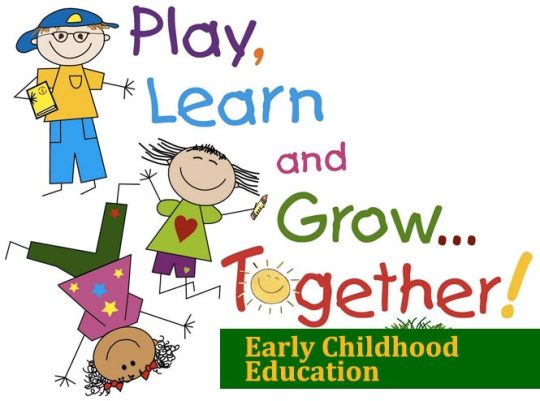What Is Early Childhood Education? - Blog

What Is Early Childhood Education?
What is Early Childhood Education?
In the United States, early childhood education is a field that covers the years from birth to age eight. It plays an essential role in children’s development as it builds their social skills, self-esteem, perception of the world and moral outlook.
Early childhood education should include both teacher-directed and child-initiated activities that encourage children to explore their interests and learn through play. Furthermore, it involves cultivating relationships between children and their families based on mutual respect and encouragement.
Additionally, it involves creating an atmosphere that fosters individuality and independence in children, teaching them how to make thoughtful choices about their learning so they can reach their highest potentials.
Educators must recognize that each child’s growth and development is unique. This includes factors like family background, values, culture, language, lifestyle – everything. By understanding this fact, educators can best support each child in reaching his or her full potential.
They must know which teaching and learning approach will work best for each child, so the curriculum and activities are aligned to their developmental milestones. Furthermore, they need to be knowledgeable about each subject area such as math, science, literacy and social studies learning progressions; plus possess pedagogical expertise on effectively teaching each topic.
Early childhood education should be founded on strong disciplinary knowledge, an intimate grasp of child development and pedagogy, as well as a dedication to using research-based teaching practices. Furthermore, it must focus on providing students with social, emotional, and physical supports in order to maximize their wellbeing.
Teachers must be able to foster trusting relationships with their students in order for the classroom environment to run smoothly. Therefore, it is essential that they take the time to get acquainted with each child’s individual needs and interests.
It is essential for educators to utilize various instructional techniques and resources, such as technology and interactive media, in a way that accommodates each child’s preferred learning style.
Another essential point to remember is that successful early childhood education requires collaboration between teachers and students’ families. A good teacher will take time out of their day to meet with parents and provide updates about their child’s progress in the classroom.
Establishing a positive relationship with parents can make students feel at home in the classroom and enable them to learn better. Furthermore, teachers gain insight into students’ emotional needs and can adjust their classroom routine accordingly.
If you adore working with children and want a rewarding career, an early childhood educator could be your perfect fit. National University offers a bachelor’s degree in this exciting and demanding field that will equip you with all of the qualifications needed to begin your journey in this rewarding and stimulating field.
In addition to developing an extensive knowledge base in education and child development, you will also receive comprehensive instruction in specialized topics like infant/toddler education, preschool curriculum and early childhood assessment. By understanding the latest trends in child development and pedagogy, you can ensure your students receive a top-notch program.




